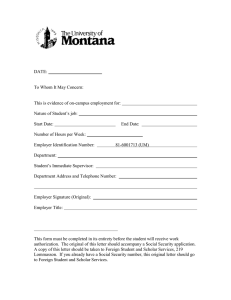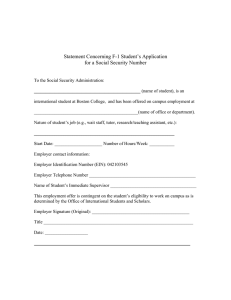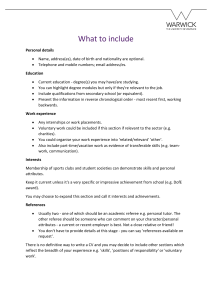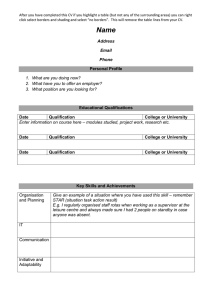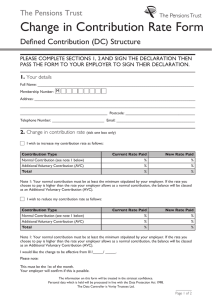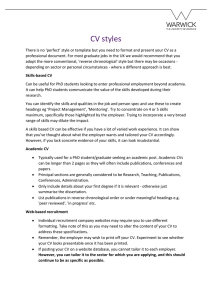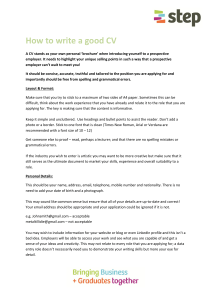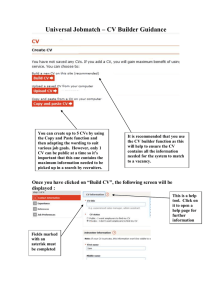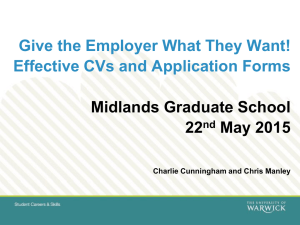Top tips for writing a good UK CV
advertisement
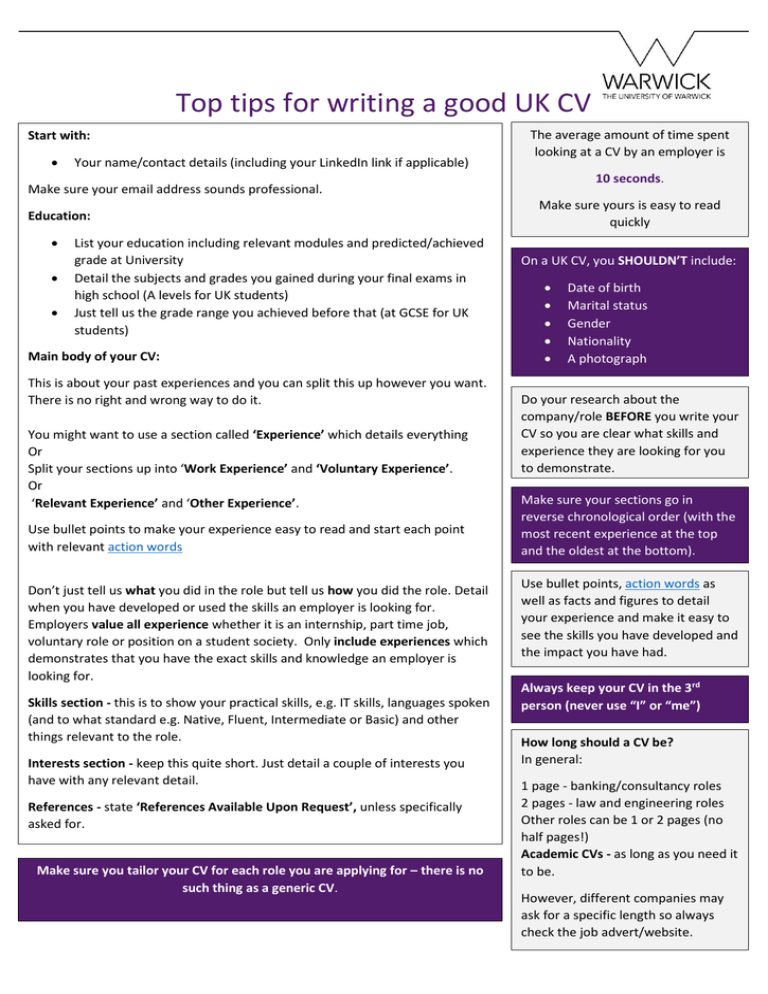
Top tips for writing a good UK CV Start with: Your name/contact details (including your LinkedIn link if applicable) The average amount of time spent looking at a CV by an employer is 10 seconds. Make sure your email address sounds professional. Education: List your education including relevant modules and predicted/achieved grade at University Detail the subjects and grades you gained during your final exams in high school (A levels for UK students) Just tell us the grade range you achieved before that (at GCSE for UK students) Main body of your CV: This is about your past experiences and you can split this up however you want. There is no right and wrong way to do it. You might want to use a section called ‘Experience’ which details everything Or Split your sections up into ‘Work Experience’ and ‘Voluntary Experience’. Or ‘Relevant Experience’ and ‘Other Experience’. Use bullet points to make your experience easy to read and start each point with relevant action words Don’t just tell us what you did in the role but tell us how you did the role. Detail when you have developed or used the skills an employer is looking for. Employers value all experience whether it is an internship, part time job, voluntary role or position on a student society. Only include experiences which demonstrates that you have the exact skills and knowledge an employer is looking for. Skills section - this is to show your practical skills, e.g. IT skills, languages spoken (and to what standard e.g. Native, Fluent, Intermediate or Basic) and other things relevant to the role. Interests section - keep this quite short. Just detail a couple of interests you have with any relevant detail. References - state ‘References Available Upon Request’, unless specifically asked for. Make sure you tailor your CV for each role you are applying for – there is no such thing as a generic CV. Make sure yours is easy to read quickly On a UK CV, you SHOULDN’T include: Date of birth Marital status Gender Nationality A photograph Do your research about the company/role BEFORE you write your CV so you are clear what skills and experience they are looking for you to demonstrate. Make sure your sections go in reverse chronological order (with the most recent experience at the top and the oldest at the bottom). Use bullet points, action words as well as facts and figures to detail your experience and make it easy to see the skills you have developed and the impact you have had. Always keep your CV in the 3rd person (never use “I” or “me”) How long should a CV be? In general: 1 page - banking/consultancy roles 2 pages - law and engineering roles Other roles can be 1 or 2 pages (no half pages!) Academic CVs - as long as you need it to be. However, different companies may ask for a specific length so always check the job advert/website.



